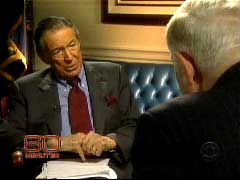 Aggressive investigative journalists in any news medium can test the mettle of even the most savvy PR professionals. More often than not, these reporters or producers usually surface unexpectedly with their stories already written or produced.
Aggressive investigative journalists in any news medium can test the mettle of even the most savvy PR professionals. More often than not, these reporters or producers usually surface unexpectedly with their stories already written or produced.
Their goal: to secure from you, the gatekeeper to the newsmaker, permission to probe your charge to elicit an attributable quote or sound bite that bolsters their pre-conceived (and often immovable) story premises.
You, on the other hand, have to determine a) how far along is the journalist with the piece, e.g., beyond balancing, b) what is the catalyst for the story and who else has been interviewed, and c) whether cooperation will make it better or worse, i.e., will the journalist listen to facts that may water down or even nullify the story’s raison d’etre.
Some on the receiving end of these calls immediately knee jerk their way to the general counsel’s office to request a letter threatening a lawsuit based solely on the tenor of the interview request. Others decline the interview, but proceed to wordsmith (again with legal counsel) a written response as means to achieve balance.
Romanesko today published a letter from a reporter for an alternative weekly newspaper in Houston whose query to an ethically challenged enterprise prompted a most unusual response.
I would only say that this approach will never merit a place on the list of best PR practices.
PR investigative journalism public relations media Romanesko